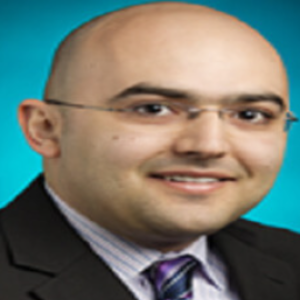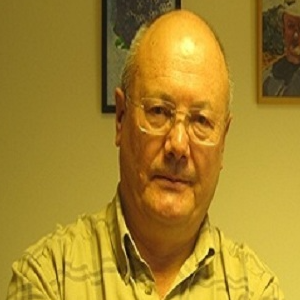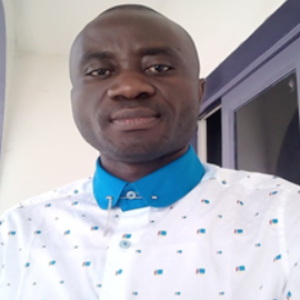P. Hemachandra Reddy, Texas Tech University Health Sciences, United States
Synaptic pathology and mitochondrial oxidative damage are early events in AD progression. Loss of synapses and synaptic damage are the best correlates of cognitive deficits found in AD patients. Recent research on Aβ, tau mitochondria and synapses in AD revealed that Aβ [....] » Read More







































Title : Brain dynamics of normal and abnormal learning, memory, and cognition with applications to Alzheimer’s disease, amnesia, autism, and neglect.
Stephen Grossberg, Boston University, United States
This talk will describe brain mechanisms of learning, memory, and cognition and how they may break down during mental disorders such as Alzheimer’s disease, medial temporal amnesia, autism, and visual and auditory neglect. These processes are described by Adaptive Resonance [....] » Read More
Title : The significant outcomes and rationale of exploiting chaos in the cns - to accelerate functional rejuvenation of the lesioned spinal cord
Ken Ware, NeuroPhysics Therapy Institute and Research Centre, Australia
In 2013 world renowned Paralympian John Maclean became the first long term paraplegic to walk again. Maclean had been 25 years wheelchair dependent pre engaging in NeuroPhysics Therapy (NPT) and within the first 3 days of this controversial therapy Maclean took his first recorded [....] » Read More
Title : Discovery of markers for brain tumors starting from mouse models
Maria-Magdalena Georgescu, Louisiana State University, United States
Glioblastoma is a deadly brain tumor with a median survival of 1.3 years after surgery, radiotherapy and chemotherapy. The dismal prognosis is due to the propensity of the tumor to invade adjacent normal brain. Although next generation sequencing led to genomic landscaping [....] » Read More
Title : Aging and traumatic brain injuries: involvement of cholinergic transmission in preclinical tests of executive function
Corina O. Bondi, University of Pittsburgh, United States
Traumatic brain injuries (TBI) impact millions of Americans, with older patients being more likely to have a co-occurring condition, particularly dementia. Galantamine (GAL), a first-line drug used to treat dementia, acts primarily as an acetylcholinesterase inhibitor and has bee [....] » Read More
Title : Brainstem Dysfunction in Neuropsychiatric Disorders – AD/PD/Depression
Harry W.M. Steinbusch, Maastricht University, Netherlands
Despite the fundamental role of the brainstem in regulating vital functional abilities such as arousal, breathing, autonomic nervous system activity as well as regulating all higher cerebral functions via neurotransmitter projections systems originating in the brainstem, the role [....] » Read More
Title : Intrathecal baclofen (ITB) combined with locomotor exercise provides better therapeutic outcome in reducing spasticity, improving anxiety, cognitive and activity performance, and no adverse effect on balance performance in a traumatic brain injury (TBI) r
Floyd Thompson, Brain Rehabilation Center, North Florida/South Gergia Veterans Health Systems, United States
Spasticity is a major health problem for patients with moderate to severe TBI. Progressive development of spasticity following TBI often represents a significant barrier for practical re-entry of TBI patients into the community. This preclinical study evaluated the safety and eff [....] » Read More
Title : Frameless stereotactic radiotherapy alone and combined with temozolomide for canine gliomas
Luca Malfassi, La Cittadina Fondazione Studi e Ricerche Veterinarie, Romanengo, Italy and Azienda Socio Sanitaria Territoriale di Lodi, Italy
We evaluated stereotactic volume modulated arc radiotherapy (VMAT RT) for canine gliomas, alone (RT) and in combination with temozolomide (RT+TMZ), compared to palliation. Overall and disease-specific survival times were estimated. Thirty dogs were palliated, 22 dogs were treated [....] » Read More
Title : Toward selective modulators of GABA-A receptors
Karol S. Bruzik, The University of Illinois at Chicago, United States
Heteropentameric GABA-A receptor is a principal drug target whose function is allosterically modulated by general anesthetics, sedatives and anticonvulsants, such as propofol, etomidate, barbiturates and neurosteroids. The current clinically used general anesthetics have numerous [....] » Read More
Title : Astrocytes as the pivotal damage---management and repair cells after focal injury in the CNS
Swetlana Sirko, Ludwig-Maximilians-University Munich, Germany
Astrocytes have a critical role in ensuring optimal brain functions,from supporting neuronal metabolism and survival to maintenance of blood?brain barrier. However, it took along time to recognize the central role of astrocytes in response to diverse types of CNS damage, such as [....] » Read More
Title : New perspectives for a more suitable therapeutic approach for Huntington’s disease
Vittorio Maglione, IRCCS Neuromed, Italy
Huntington's disease (HD), the most common dominantly inherited neurodegenerative disorder is characterized by a progressive striatal and cortical neurodegeneration associated with cognitive and behavioral disturbance. The disease-causing mutation is an polyglutamine (polyQ) [....] » Read More
Title : Antigravity suit "Atlant" in neurological rehabilitation of patients with motor and cognitive impairments
Valida Isanova, Kazan State Medical University, Russian Federation
The nervous system disorders and mental impairments still remain to be among the main causes of children and adults incapacity. Currently neurorehabilitation has a particular relevance and importance among people suffering from nervous system disorders, incapable of moving i [....] » Read More
Title : Do lower limb robotic exoskeletons have a role in neurological rehabilitation? A systematic review
Jodie Marquez, University of Newcastle, Australia
Background: Technological advances have led to the emergence of robotic exoskeletons as a potential therapy option for patients with neurological conditions. To date, the body of evidence has focused on the spinal cord injury population but more recently there has been growi [....] » Read More
Title : Continued refinement of environmental enrichment as a preclinical model of neurorehabilitation after experimental brain trauma
Anthony E. Kline, University of Pittsburgh, United States
Traumatic brain injury (TBI) affects two million people in the United States each year and several million more worldwide, making it a significant health care issue. Brain traumas range from mild to severe with the former being the case in most occurrences and generally not displ [....] » Read More